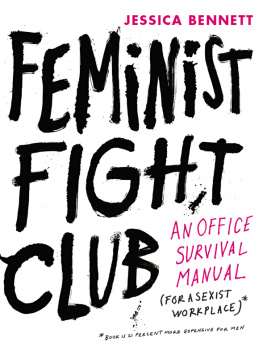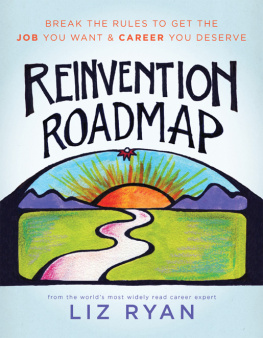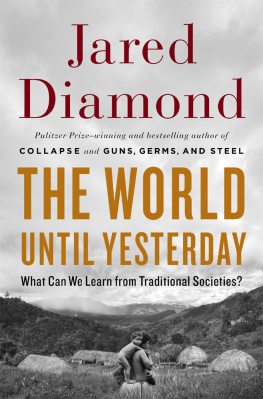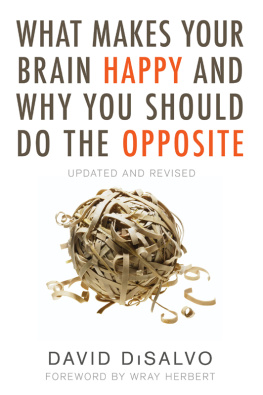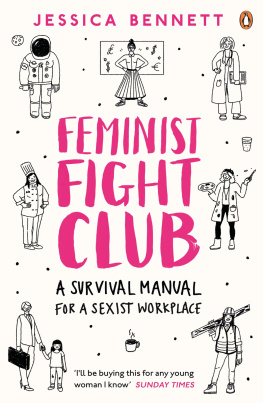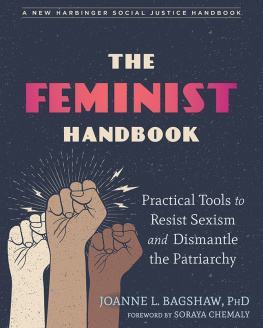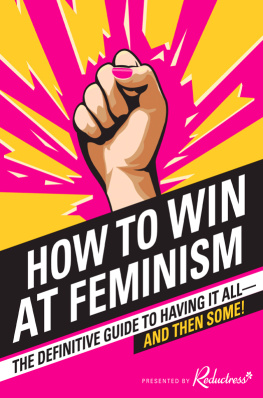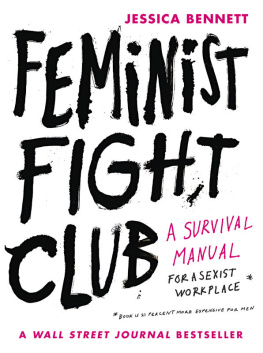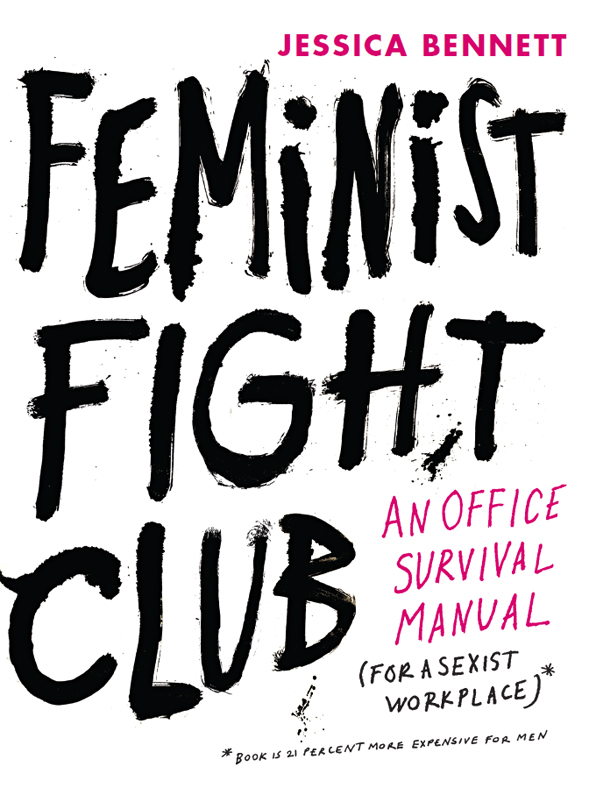
TO MY OWN FEMINIST FIGHT CLUB:
the ultimate squad, sisterhood,
girl army, #pussyposse, and battle
comrades a gal could ask for.
You are my queens.
CONTENTS
Guide
T here is no right way to read this book. Read it front to back, open it in the middle, or treat it like a cookbook: flip to the sections you like best, put comments and notes where you want, copy them out and slide them underneath your bosss door.
The goal of this book is to provide you with battle tactics: simple, easy to follow, effective tricks for combatting sexist, subtly sexist, overtly sexist, and sometimes just oblivious behaviors that exist in even our most progressive offices.
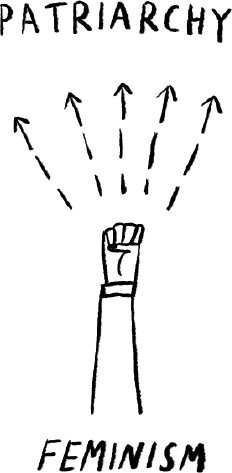
Much of what youll read here is inspired by my own experiences, as well as those of colleagues, sources, and friends. But it is also backed up by data: vetted, published, peer-reviewed research you can find documented at the end. The tone of this book may be light, but its basis is notand not a premise or a fight move exists without statistical evidence to back it up.
This book wont describe every character nor every workplace. But my hope is that there is something in it for everyone, no matter their career level or economic class, their race, sexual orientation, or gender identity. I am writing for women, but I am also writing for menbecause you, male feminists, are crucial to this battle.
Feminist Fight Club is a manual, it is a manifesto, but its also a choose-your-own-adventureleft in the hands of you, the reader, to carry forward. I hope you will.
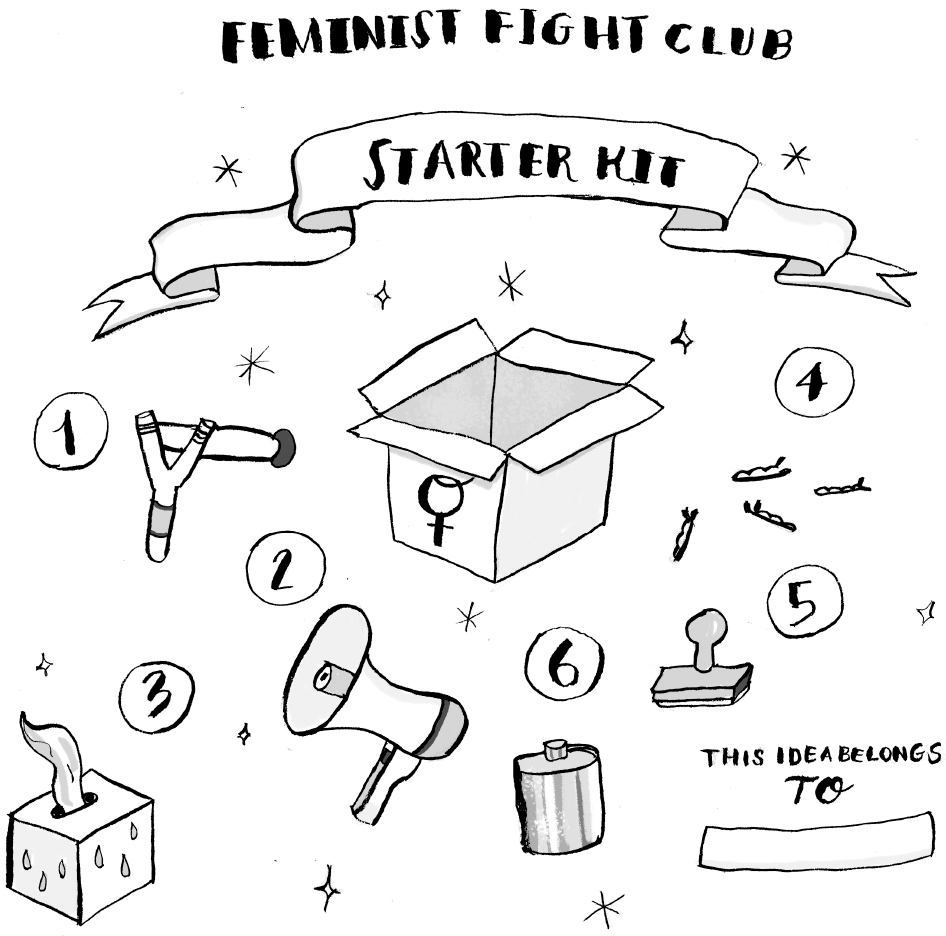
FOR SHUTTING UP MANTERRUPTERS
MAKE YOUR VOICE HEARD!
TO DRY MALE TEARS
FOR KEEPING HAIR OUT OF EYES DURING BATTLE
PREVENT BROPROPRIATION WITH THIS HANDY STAMP
BECAUSE: WHISKEYYYYYY
fem-i-nist / n.
A person who believes in equality between men and women. (YOU!)
pa-tri-ar-chy / n.
A system that was created by and for men, from language (human) to your office temperature (yes, that AC is actually set to a temp most comfortable to the XY chromosome). No, not every man is part of the patriarchy. But we do refer to the patriarchy as The Man.
Fem-i-nist Fight Club / n.
Your crew, your posse, your girl gang; your unconditionally helpful professional support system; your ride-or-die homies.
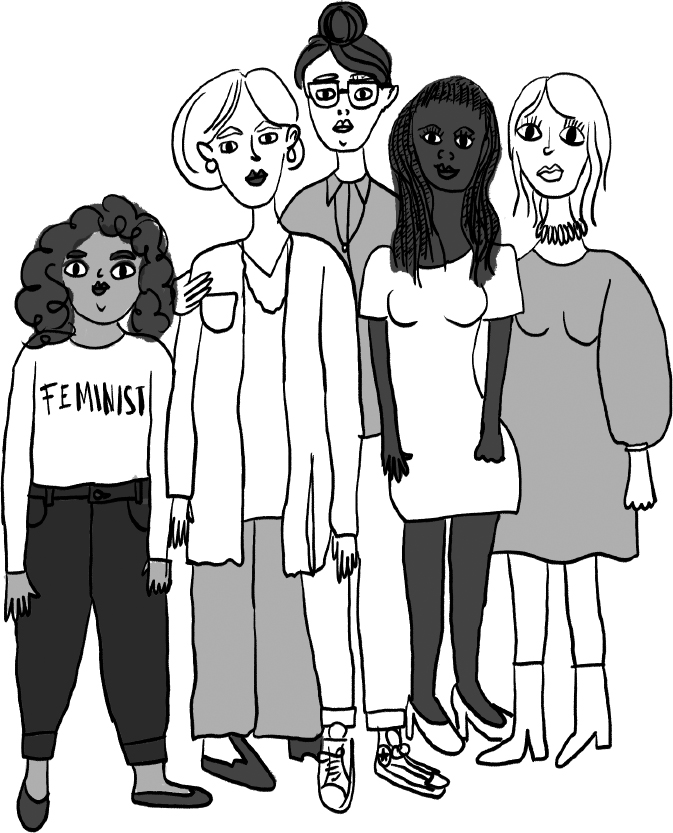
The law cannot do it for us. We must do it for ourselves. Women in this country must become revolutionaries.
Shirley Chisholm, the first African American woman elected to the U.S. Congress
I t was a fight clubexcept without the fighting and without the men. Every month or so, a dozen of uswomen in our twenties and thirties, struggling writers and creative types, most of us with second jobswould gather at a friends apartment (actually, her parents apartment: none of us had an apartment big enough to fit that many people). Shed provide the pasta, salad, or pasta salad, and wed bring the wine (and seltzer... for some reason we all really liked seltzer). Wed pile our plates high and sink into the cushioned couches in her living room to talkor, bitch, ratherabout our jobs.

In those early days, the rules of the fight club were simple:
What was said in the group stayed in the group.
Members were never to speak the groups name.
And we practiced strict vag-cronyism.
That is, membership was not based on merit but vagina. Which meant that once you were in, you were in: engulfed in bosom-like support, embraced and respected, encouraged with finger snaps and fist bumps and cat videos, but no cattiness. We had a strict no mean girls policy.
The fact that the club was kept a secret basically justified its need. We were smart, ambitious women striving to make it in New York, a city that eats the soft alive. We had grown up in an era of Girl PowerSpice Girls, you know itwhen it wasnt simply an encouragement but an expectation that girls could be and do whatever they wanted. And we believed it. The gender war, we thought, was a relic of our mothers generationa battle won long ago.
And yet each of us, in every field, in every role, was stumbling into gender land mines at seemingly every turnand often ones we didnt even know existed. It was like trying to dodge that stench that lurks on a New York City street on a hot summer night: there you were, minding your own business, and BAM.
Our meetings had a moderator, of sortsour host. Sometimes shed hand out note cards containing handwritten questions. (Where do you want to be in five years? Whats one way you plan to help another woman this year? Whos your favorite female perforOh wait, duh, Beyonc.) There were times wed gather in smaller, informal settings as needed: if one of us had a crisis, an upcoming job interview, an article due, an impending mental breakdown, or looming unemploymentwhich nearly every one of us had faced at one point or another.
But usually we simply hung out, ate snacks, shot the shit, and talked about work.
Ive vowed to keep their details secret, but the group looked something like this: Danielle, a brilliantly funny writer, had been toiling away as an assistant at a well-known TV show (a show that, at that time, had not a single female writer). On the side, shed written two books, created web videos, and taught herself Photoshopmostly so she could make colorful invitations to Fight Club meetings. But at work, she was consistently passed over for promotions. Tired, disgruntled, and dying of boredom, she had taken to mining the web for inspirational lady-news to send to get us through the day. That, and making feminist cat sweatshirts. Did any of us know somewhere she could try to sell them?
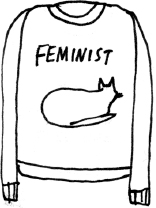
Nola, a project manager at an ad agency, had recently emailed us all in a rage. She was leading a top-level client meeting when one of her male colleagues had asked if she wouldnt mind grabbing some coffee for the group. Stunned, she found herself trudging to the kitchen to complete the task. She returned to the meeting with a coffee stain down the front of her blouse and daggers shooting from her eyes.

There was another woman, a straight-shooting web developer named Rachel, whose male boss told her she was too aggressive with her staff. Everyone knew what that was code for: too loud, a little bossy, not ladylike enough, according to some made-up standard. But this woman was good at her jobthat was never in question. So why should

